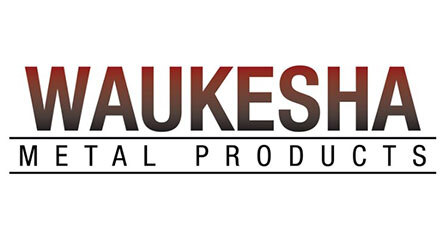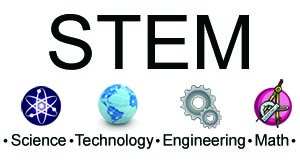After attending the Manufacturing Matters conference Thursday, Feb. 27, three students, Kathryn Lieffrig, Nick Preston and Ryan Rasmussen shared their perspectives and excitement for their future careers in the manufacturing industry; the exact enthusiasm that manufacturing companies are looking for. Kathryn Lieffrig provided insight on her interest in engineering: Engineering has been a passion of mine since seventh grade. The innovations associated with it are truly incredible. I have attended two camps at UW-Madison, which allowed me to stay on campus and to better understand the life of an engineering student. Recently, we attended a manufacturing trip, in which we toured different manufacturing companies which allowed us to witness applications. I look for any possible opportunity to broaden my spectrum, and learn more about production and innovation. With Lieffrigs enthusiasm about engineering, companies would like to assume other students have this same attitude. Companies hope schools are providing curriculum for science, technology, engineering, and mathematics (STEM), but surprisingly, the students mentioned it wasnt. Lieffrig, along with Preston and Rasmussen, mentioned that STEM programs arent a high priority in their schools but wished they were. Why are STEM programs important, and why does it seem as though schools arent providing them? According to the 2014 Manufacturing Vitality Index, NEW Manufacturing Alliance reported that 60 percent of employers reported difficulty finding qualified workers. One in three manufacturers are planning to hire in each quarter in 2014, and for the first time in 60 years, the number of workers facing retirement outpaces the number of teens entering the workforce. Finding qualified workers is becoming more and more difficult for the industry. This statistic is Northeast Wisconsin alone; imagine the state or nation as a whole. Rodney Adkins, senior vice president of IBMs Systems & Technology Group, provided a point in a 2012 Forbes article, America Desperately Needs More STEM Students. Heres How to Get Them, stating,
according to the U.S. Department of Labor, only 5% of U.S. workers are employed in fields related to science and engineering, yet they are responsible for more than 50% of our sustained economic expansion. How do we raise interest towards science and engineering careers to increase that five percent to a much greater value? STEM programs. Adkins believes
to benefit our economy and society, our national priority should be on encouraging more students to study STEM. And hes not alone. President and CEO, Andrew Liveris, of Dow, and co-chair of the Advanced Manufacturing Partnership (AMP) mentioned in his recent article, Fueling the Innovation Ecosystem, that AMP has recommended a national strategy to create new jobs and drive economic growth through advanced manufacturing. One of the key areas Liveris focuses on to grow this economic drive is STEM programs: Governments have a vital responsibility to ensure that our young people get the education they need especially in the science, technology, engineering, and mathematics (STEM) fields. This requires a holistic approach in grade schools, universities, and community colleges, as well as by retaining experienced workers.
Brian Smith, a program engineer at Waukesha® Metal Products, provided his insight as to why he believes students arent interested in careers like engineering. Do you believe Generation Y (Millennials; 1980-2000) have an absence of knowledge in STEM programs? Do you believe the lack of knowledge starts with schools, businesses, both/other? I believe the problem starts with schools. Many schools dont have the funding to build science and technology labs. Consequently, students dont have the experience of learning about science and technology in practical ways. Math, especially, is taught in an abstract way. This puts off students because they dont understand it and they dont understand its significance in their daily lives. Do you believe schools should include STEM programs in their curriculum? Yes, its important to be scientifically literate regardless of ones career path. All of the tools we use are based on math and science, almost everyone uses a computer of some sort on a daily basis. Having knowledge of how these tools work will make for a more effective and innovative workforce. Any insight to why students/kids should gear towards STEM careers? Technological and scientific breakthroughs increase our knowledge of the world and this in turn increases our ability to positively impact and advance it. It is important for students to go into STEM fields so that they have the knowledge and ability to make these advancements for the future. Smith is part of the 5 percent of U.S. workers that helps build and create 50 percent of our economic expansion Adkins was referring to. As a manufacturing company continuously growing and looking to hire people from this limited talent pool, Waukesha® Metal Products knows the importance of reaching out to schools, teachers, and parents to start engaging students in STEM programs. Lieffrig, Preston and Rasmussen told attendees to come to the schools and tell them about apprenticeship programs and STEM programs. Each mentioned that a lot of schools dont know enough about STEM or available apprenticeships. It is imperative that businesses are not only reaching out to the schools, but to the parents as well. Talking to the parents and informing them of the great benefits that the manufacturing industry could provide to their children would help cultivate interest in manufacturing careers and the pathways to get these fulfilling careers. Showing the parents the modern changes the industry has made could be one valuable way of changing their outlooks of manufacturing. As Liveris states, No more shuttered factories. No more burnt-out smokestacks. The worlds leading innovators are replacing them with high-tech laboratories and state-of-the-art plants. There has been a change in manufacturing, a great change. So lets show schools, universities, parents, and students that STEM programs can lead to a great future career. Lets show them the change.

